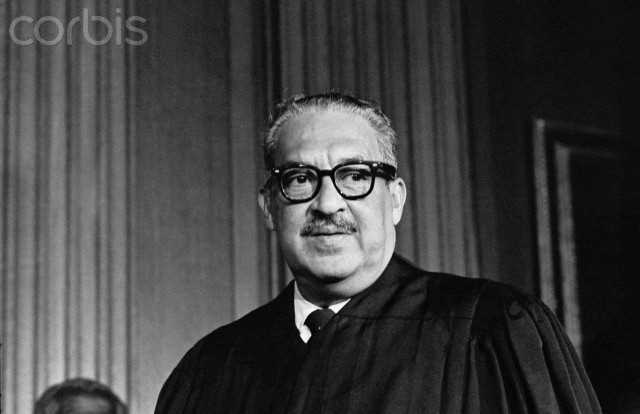Thurgood Marshall established LDF in 1940 and filled in as its first Director-Counsel. He was the engineer of the legitimate technique that finished the nation's authentic strategy of isolation. Marshall was the primarily African American to serve on the Supreme Court on which he filled in as Associate Justice from 1967-1991 after he was effectively assigned by President Johnson.

He resigned from the seat in 1991 and passed away on January 24, 1993, in Washington DC at 84 years old. Social liberties and social change occurred through careful and persevering case endeavors, at the cutting edge of which stood Thurgood Marshall and the Legal Defense Fund. Through the courts, he guaranteed that Blacks delighted in the rights and duties of full citizenship.
Quickly after graduation, Marshall opened a law office in Baltimore and in the mid-1930s, he spoke to the nearby NAACP section in a fruitful claim that tested the University of Maryland Law School over its isolation arrangement. Furthermore, he effectively brought claims that incorporated other state colleges. In 1936, Marshall turned into the NAACP's boss legitimate direction.
The NAACP's underlying objective was to pipe rise to assets to dark schools. Marshall effectively tested the board to just contest cases that would address the core of isolation.
In the wake of establishing the NAACP Legal Defense Fund in 1940, Marshall turned into the key strategist in the push to end racial isolation, specifically carefully difficult Plessy v. Ferguson, the Court-endorsed legitimate tenet that called for "isolated yet equivalent" structures for white and blacks.
Marshall won a progression of court choices that steadily struck down that teaching, at last prompting Brown v. Leading group of Education, which he contended under the steady gaze of the Supreme Court in 1952 and 1953, at long last upsetting "independent however equivalent" and recognizing that isolation extraordinarily lessened understudies' confidence. Asked by Justice Felix Frankfurter amid the contention what he implied by "square with," Mr. Marshall answered, "Level with implies getting a similar thing, in the meantime, and in a similar place."
In 1957 LDF, drove by Marshall, turned into an altogether isolate element from the NAACP with its own particular administration and directorate and has remained a different association right up 'til the present time.
As a lead lawful designer of the social equality development, Marshall continually made a trip to little, dusty, searing courts all through the south. At a certain point, he directed upwards of 450 concurrent cases. Among other real triumphs, he effectively tested a whites-just essential race in Texas notwithstanding a case in which the Supreme Court announced that prohibitive agreements that banned blacks from purchasing or leasing homes couldn't be implemented in state courts.
In 1961, President Kennedy assigned Marshall to the U.S. Court of Appeals for the Second Circuit in which he composed 112 sentiments, none of which was upset on advance. After four years, he was delegated by President Johnson to be specialist general and in 1967 President Johnson named him to the Supreme Court to which he remarked: "I have a lifetime arrangement and I expect to serve it. I hope to pass on at 110, shot by an envious spouse." Of the arrangement President Johnson later that Marshall's assignment was "the correct action, the ideal time to do it, the correct man and the opportune place."
As a Supreme Court Justice, he turned out to be progressively disheartened and frustrated as the court's lion's share withdrew from cures he felt were important to address remainders of Jim Crow. In his Bakke contradict, he expressed: "In light of the heartbroken history of separation and its staggering effect on the lives of Negroes, carrying the Negro into the standard of American life ought to be a state enthusiasm of the most elevated request. To neglect to do as such is to protect that America will everlastingly remain a partitioned society."